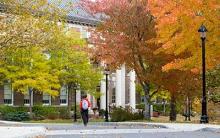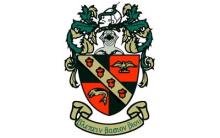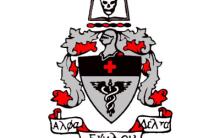Rensselaer is proud to offer a four-year degree in this emerging field involving the study of the structure and function of the brain and nervous system.
Neuroscience is the study of the structure and function of the brain and nervous system. This field is highly interdisciplinary with scientists and engineers from many different backgrounds using multidisciplinary experimental approaches. The program purpose is to provide an overview and in-depth study in biological neuroscience with the foundation required to pursue advanced study in neuroscience, professional programs, and/or to seek employment in this diverse field.
Program of Study
Our program trains students in analytical problem-solving skills using cutting-edge research approaches and technologies.
As a result of completing this program students will:
- demonstrate proficiency in neuroscience, as well as in the foundational topics of cell and molecular biology, genetics and evolution, biochemistry, and ecology and the environment.
- demonstrate additional competency in advanced Biological Sciences topics relative to their academic interest.
- be able to apply skills such as reading primary literature, developing testable hypotheses, designing experiments, collecting and analyzing data, and using statistical and quantitative methods.
- be able to communicate effectively on scientific topics in written and oral formats.
- be able to apply knowledge and skills from across the curriculum to current problems in biological sciences to generate integrative papers, proposals, or other types of projects.
The B.S. in Biological Neuroscience includes both foundational biological science courses and a focus on neuroscience in the upper levels of the program. While rigorous, the undergraduate curriculum (128-Credits) offers sufficient flexibility and course choices to allow you to tailor your education.
2025-2026 Academic Year Biological Neuroscience, B.S. Curriculum Template
Research is an important component of the B.S. in Biological Neuroscience. Our program introduces you to research in basic and advanced laboratory courses, and most students pursue independent research in a faculty laboratory or during their Arch Away Semester.
Rensselaer students can minor in just about any degree area offered on campus. Minors of particular interest to those majoring in Biological Neuroscience include:
The Arch is a unique approach to education that provides flexibility in the semester schedule, allowing students to pursue professional and personal development opportunities that prepare them to meet the multifaceted challenges of the 21st century. The Arch is a requirement of the Rensselaer curriculum.
Summer Here
During The Arch, students remain on campus for the summer after their sophomore year, taking junior-level classes, and receive focused attention from professors at this pivotal point in their academic progression.
The World Away
Then, students leave the Troy campus for a semester during the traditional junior year—either fall or spring—to pursue their passions in the form of co-ops, internships, civic engagement, research, or international experiences. Students who pursue these opportunities during their academic career are better prepared for future professional careers and graduate school.
For more information regarding the Arch, please visit https://the-arch.rpi.edu/
The Biological Sciences faculty provide a variety of research opportunities for undergraduate and graduate students enrolled in our degree programs. Students who are interested in pursuing research themselves or learning more about what faculty members in our department should consult the Biological Sciences Research page.
The Biological Neuroscience & Psychological Science Dual Major is a combination of two programs across Rensselaer's School of Science and School of Humanities, Arts, and Social Sciences.
2025-2026 Academic Year BLNS and PSYS Dual Major, B.S. Curriculum Template
Academic Opportunities

Student researchers play a critical role in the world-changing discovery, innovation, and breakthroughs taking place across campus.

Tri-Beta Biological Honor Society is for undergraduate students dedicated to improving the understanding and appreciation of biological study, and extending the boundaries of human knowledge through scientific research.

Alpha Epsilon Delta is the National Health Preprofessional Honor Society dedicated to the encouragement and recognition of excellence in preprofessional health scholarship.
